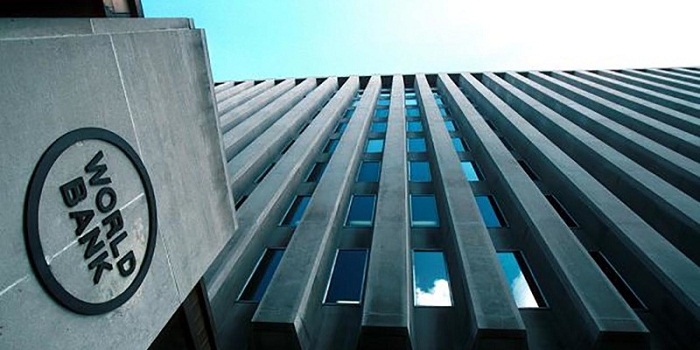Oil prices to stay near current level throughout 2016 - World Bank

In a message that will cheer motorists and countries that import oil, it added that warm winter weather in Europe and weaker than expected growth in China and other emerging economies will depress demand and keep the average price at $37 (£26) a barrel, down from a projection of $51 last October.
Only two yeas ago, oil was trading at above $115 a barrel and petrol pump prices were more than 130p a litre. In recent weeks the price of Brent crude has sunk below $30 a barrel and supermarket petrol prices have dipped below £1 a litre.
John Baffes, senior economist and lead author of the World Bank’s commodities markets outlook, said: “Low prices for oil and commodities are likely to be with us for some time. While we see some prospect for commodity prices to rise slightly over the next two years, significant downside risks remain.”
Brent crude rose almost 5% to touch $32 a barrel, reversing earlier falls after both Opec and non-Opec producers responded by saying they would adopt further measures to tackle oversupply.
The FTSE 100 in London ended 0.6% higher at 5,911 points, while Frankfurt and Paris both added about 1%, shrugging off a 6.4% fall in Shanghai that took the leading Chinese stock market to its lowest close since December 2014. New York continued the recovery to register an early 298-point gain by 5.30pm GMT.
The World Bank’s intervention follows a forecast by the International Energy Agency that contributed to panic selling last week and a collapse in the price of Brent crude to $27 a barrel. The report said prices could fall further as new Iranian output cancels out production cuts elsewhere, leading to third successive year when supply exceeded demand by 1m barrels a day.
Officials at the bank played down the likelihood of a crash, though they warned in a separate report that a synchronised slowdown in the biggest emerging markets could be intensified by a fresh bout of financial turmoil, tipping the world economy into recession.
Oil prices began to tumble during the summer of 2014 in response to a slowdown in China’s factory output. The country’s manufacturing industry, which in the aftermath of the 2008 financial crash has become the world’s largest single destination for oil and metals, stopped buying commodities at the previous high levels.
Investors expected the major oil producers to cut production in response to falling demand, but instead the Saudi-led Opec nations, Russia, and the US oil fracking firms have until recently maintained the flow of crude into world markets.
The World Bank, which is a major lender to developing nations, said the market had reached a turning point and the “fundamental drivers of oil demand and supply” are “likely to partly reverse”.
It argued that prices would stabilise below $40 for the rest of the year as high-cost oil producers make production cuts “that are likely to outweigh any additional capacity coming to the market”. A modest pickup in global growth would also prevent a further slump.
Beyond oil markets, the prices for commodities are expected to be weighed down by a plentiful supply of food and metals amid slowing demand in emerging market economies. In all, prices for 37 of the 46 commodities monitored by the World Bank were revised lower for the year.
“Emerging market economies have been the main sources of commodity demand growth since 2000. As a result, weakening growth prospects in these economies are weighing on commodity prices. A further slowdown in major emerging markets would reduce trading partner growth and global commodity demand,” it said.












































